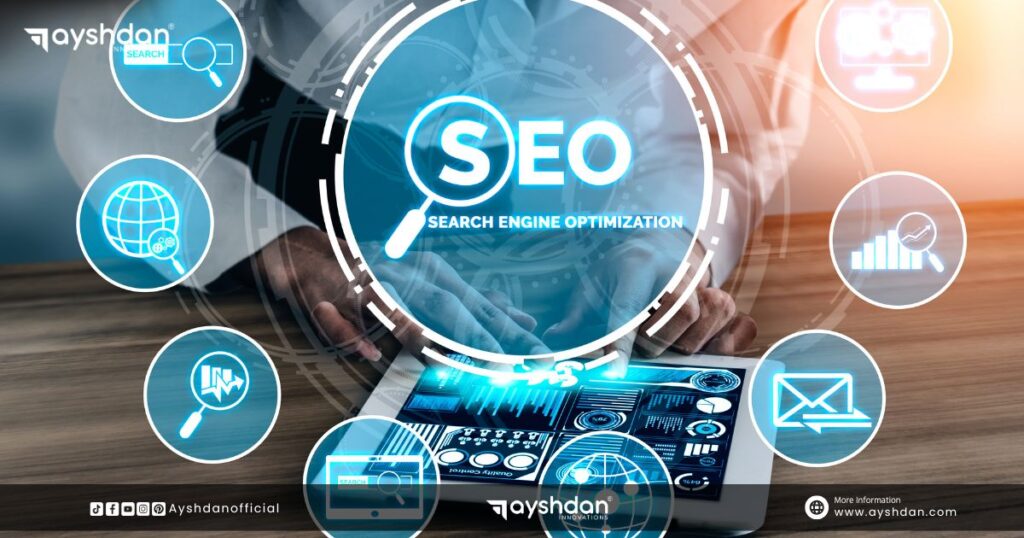Introduction
In today’s hyper-connected digital landscape, visibility is everything. Businesses, bloggers, and brands are all competing for that coveted top spot on Google’s search results. This is where SEO (Search Engine Optimization) comes in. It’s the art and science of optimizing content so that search engines rank it higher—bringing in more traffic, leads, and ultimately, conversions.
Whether you’re a startup or an established company, understanding SEO can make the difference between digital obscurity and online success. In this article, we’ll explore what SEO is, how it works, why it matters, and how you can use it to grow your business in 2025 and beyond.
“If your business isn’t on the first page of Google, does it even exist?”
This isn’t just a catchy line—it’s the harsh truth of the digital world. With millions of websites battling for attention, Search Engine Optimization (SEO) is no longer optional. It’s essential.
What is SEO?
SEO stands for Search Engine Optimization—a set of strategies used to improve a website’s visibility on search engines like Google, Bing, or Yahoo. It focuses on both technical and content-based elements to help websites rank higher for relevant search terms.
Think of SEO as a bridge between your content and your audience. If your site is well-optimized, users will find you organically (without paid ads) when they search for topics related to your niche.
How Does SEO Work?
SEO works by making your site more attractive to search engine algorithms. These algorithms look at hundreds of factors to determine rankings. Here are the main components:
1. On-Page SEO
This involves optimizing individual pages for specific keywords. It includes:
- Keyword-rich titles and meta descriptions
- Proper use of headers (H1, H2, etc.)
- Internal linking
- Alt-text for images
- Fast page speed and mobile-friendliness
2. Off-Page SEO
These are actions taken outside your website to boost your ranking. The most important is backlinking—getting other reputable sites to link to yours.
3. Technical SEO
This includes optimizing your website’s backend:
- XML sitemaps
- Secure (HTTPS) site
- Structured data (schema markup)
- Mobile optimization
4. Content SEO
Search engines love quality content. Writing helpful, relevant, and well-structured articles that answer user intent is a huge part of SEO success.

Why is SEO Important?
Here’s why SEO is a must for digital marketing:
- Increased Visibility: 75% of users never scroll past the first page of search results.
- Higher Traffic: Organic search is one of the largest traffic sources for most websites.
- Cost-Effective: Unlike ads, SEO brings free long-term traffic.
- Builds Trust and Credibility: Top-ranked sites are perceived as more trustworthy.
- Improves User Experience: SEO enhances site usability and navigation.
Key SEO Trends in 2025
The SEO landscape is always evolving. Here are the top trends:
1. AI and Search Algorithms
Google’s AI (like RankBrain) is getting smarter. It focuses on user intent rather than just keywords. Content should be natural, helpful, and answer-specific.
2. Voice Search Optimization
With smart speakers and voice assistants, more users are searching by speaking. Focus on conversational keywords and long-tail queries.
3. Mobile-First Indexing
Google primarily uses the mobile version of your site for ranking. A responsive, fast-loading mobile site is now essential.
4. E-E-A-T (Experience, Expertise, Authoritativeness, Trustworthiness)
Google favors content written by experts or based on real experience. This is especially important for health, finance, and legal websites.
5. Video Content
Videos are dominating search results. YouTube SEO and adding video schema to your pages can give you a competitive edge.
Best SEO Practices for 2025
If you’re looking to boost your SEO strategy, here’s what you should do:
- Do Proper Keyword Research using tools like Google Keyword Planner, SEMrush, or Ubersuggest.
- Create Long-Form Content (1000+ words) that answers the user’s questions in detail.
- Optimize Meta Titles and Descriptions to boost click-through rates.
- Build High-Quality Backlinks through guest posting, digital PR, or collaborations.
- Keep Monitoring and Updating your content regularly to keep it fresh and relevant.
- Use Google Search Console and Google Analytics to track your SEO performance.
Common SEO Mistakes to Avoid
- Keyword Stuffing: Overloading content with keywords can hurt rankings.
- Ignoring Mobile Experience: If your site isn’t mobile-friendly, you’ll lose rankings.
- Buying Backlinks: Unnatural or paid links can lead to Google penalties.
- Duplicate Content: Every page should have original, unique content.
- Skipping Image Optimization: Alt-tags and compressed images help with both SEO and loading speed.
Conclusion: SEO is a Long-Term Investment
SEO isn’t a magic button that gives instant results. It’s a long-term investment that builds over time. But the payoff? Massive visibility, sustainable traffic, and business growth.
In a world dominated by digital noise, SEO is your secret weapon to rise above the clutter and connect with your audience.
Frequently Asked Questions
Can I do SEO for free?
Yes! Many SEO techniques like writing good content, optimizing titles, and improving user experience can be done without spending money. Free tools like Google Search Console can also help.
What’s the difference between on-page and off-page SEO?
On-page SEO refers to optimizing content on your website, while off-page SEO involves actions taken outside your website, like backlinking and social sharing.
Do I need to hire an SEO expert?
Not necessarily. With the right tools and resources, small businesses can handle basic SEO. However, experts can help with advanced strategies and faster growth.
Is SEO better than paid advertising (PPC)?
SEO is more cost-effective for long-term growth, while PPC offers instant visibility. A mix of both often works best.
How long does it take to see results from SEO?
SEO is a long-term strategy. Typically, it takes 3 to 6 months to start seeing noticeable results, depending on competition and effort.














